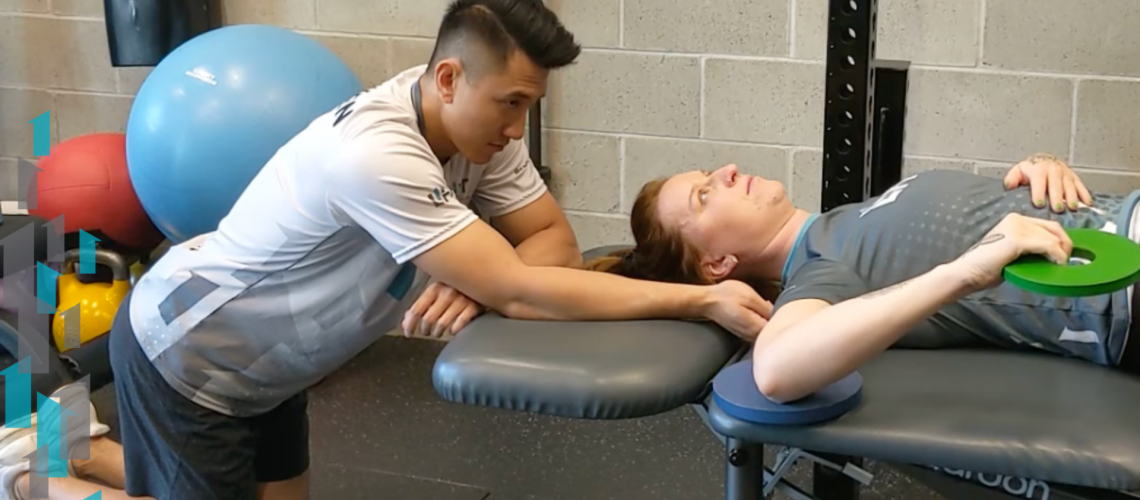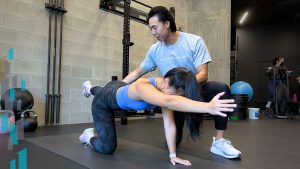Know how to navigate Imposter Syndrome as a new practitioner from the Lift Clinic team!
After speaking with many new graduates from different university programs and being a new graduate not so long ago, impostor syndrome is a wide-spread issue. After finishing a theory-based degree, it can be hard to understand how to apply your new knowledge in a different setting or when applying for a new job. Hopefully this post can help you understand what impostor syndrome is and how to combat it so that you can feel more confident in your abilities when working with clients.
Before jumping into the topic, let’s define it. Impostor syndrome can be explained as the persistent inability to believe that one’s success is deserved or has been legitimately achieved because of one’s own efforts or skills.
Eg. Second-guessing that what you’re doing was the correct decision, using phrases like “fake it till you make it” or having thoughts such as “I don’t know what I’m doing” when really, you do have an idea doing and you’re making informed decisions in order to do your job properly!
This post is a continuation of our blog series on creating effective and helpful resources for practitioners, students, and anyone looking to reflect and work towards their goals in life.
If you haven’t already, visit our blog page to learn more about how we assess and treat other movements in the body.
The Importance of Practical, Long-Term Experiences:
Don’t take your common sense for granted, if you have a degree, you have a great base of theoretical knowledge. To reinforce this knowledge, you also need to compliment that with practical experiences. Hopefully this was done throughout your degree so that you come out of it having applied your knowledge outside of the classroom, but if not, there are plenty of opportunities in the work force that offer on-site training.
Being put into a clinical or on-field environment can help build confidence as you become more comfortable in these settings. With more confidence in your skills and comfortability in different settings, you will likely be able to make more valuable contributions to the clients you’re working with.
There are many different placements to be involved with throughout your degree and the amount of choice might feel overwhelming. Generally, rather than partaking in 4 smaller activities, feeling as though you are unable to give your best efforts to any of them, it can be better to pick one or two that you can focus on which can allow you to give your best efforts. Getting comfortable in one setting, more frequently, over a longer period will probably allow you to make the most of that experience, make genuine connections and maximize the use and growth of your skills.
Visit our IG post to see the highlights
A Note on the Dunning-Kruger Effect
On the flipside of impostor syndrome, something called the Dunning-Kruger effect is something that happens when a person is over-confident in their skills and abilities and is unaware of this overconfidence. This can look like someone giving opinions/carrying out tasks in their field that others disagree with or are maybe not as widely accepted. Although this blog is covering the topic of impostor syndrome which is the opposite of the Dunning-Kruger effect, it is worth it to mention briefly.
How do I overcome Impostor Syndrome?
There are many ways to help combat impostor syndrome such as practicing and becoming more comfortable with skills you’re unfamiliar with, becoming aware of your self-limiting thoughts and accepting help from others!
Learn and practice specific skills
Find out what skills you want to work on and learn more if you don’t feel confident in certain skills. Once you have narrowed down these skills, seek out guidance from a mentor or a continued education course to help you hone in these skills. Once you’ve received some guidance, practice them! If we don’t practice new skills, we’re bound to forget certain details and do a non-adequate job.
Cut down on self-limiting beliefs and thoughts
Notice the kind of self-talk you’re engaging in with yourself. Are these thoughts more negative or positive in nature? With impostor syndrome, there are many negative thoughts that can cloud your judgement and belittle your actual skills and abilities. Once you notice the pattern of your thinking, it’s much easier to reframe or cut off those thoughts before you start to identify with them. This can be hard as a lot of us have made negative and self-deprication a habit, but thnk of it as as another skill that just takes some consistent practice! Remember that your common sense is not common sense, you do have an idea of what you’re doing (you have a degree remember?) and if you’re really that worried about your abilities, there are many resources available to you! Don’t forget to give yourself a little more credit where credit is due!
Lean on others
No one in the field knows how to do absolutely everything, which is why working with a team and having others you can bounce ideas from can be extremely beneficial. Being collaborative with your approach can help each other grow as a practitioner and will ensure your client gets the best care possible. No one person has all the answers and it’s not your responsibility to know all of them either!
Additional resources and information on imposter syndrome, how to recognize your feelings and how to overcome imposter syndrome so you can work towards your goals in life. If you haven’t already, check out our post on experiencing burnout as feelings of imposter syndrome and burnout are highly correlated.




